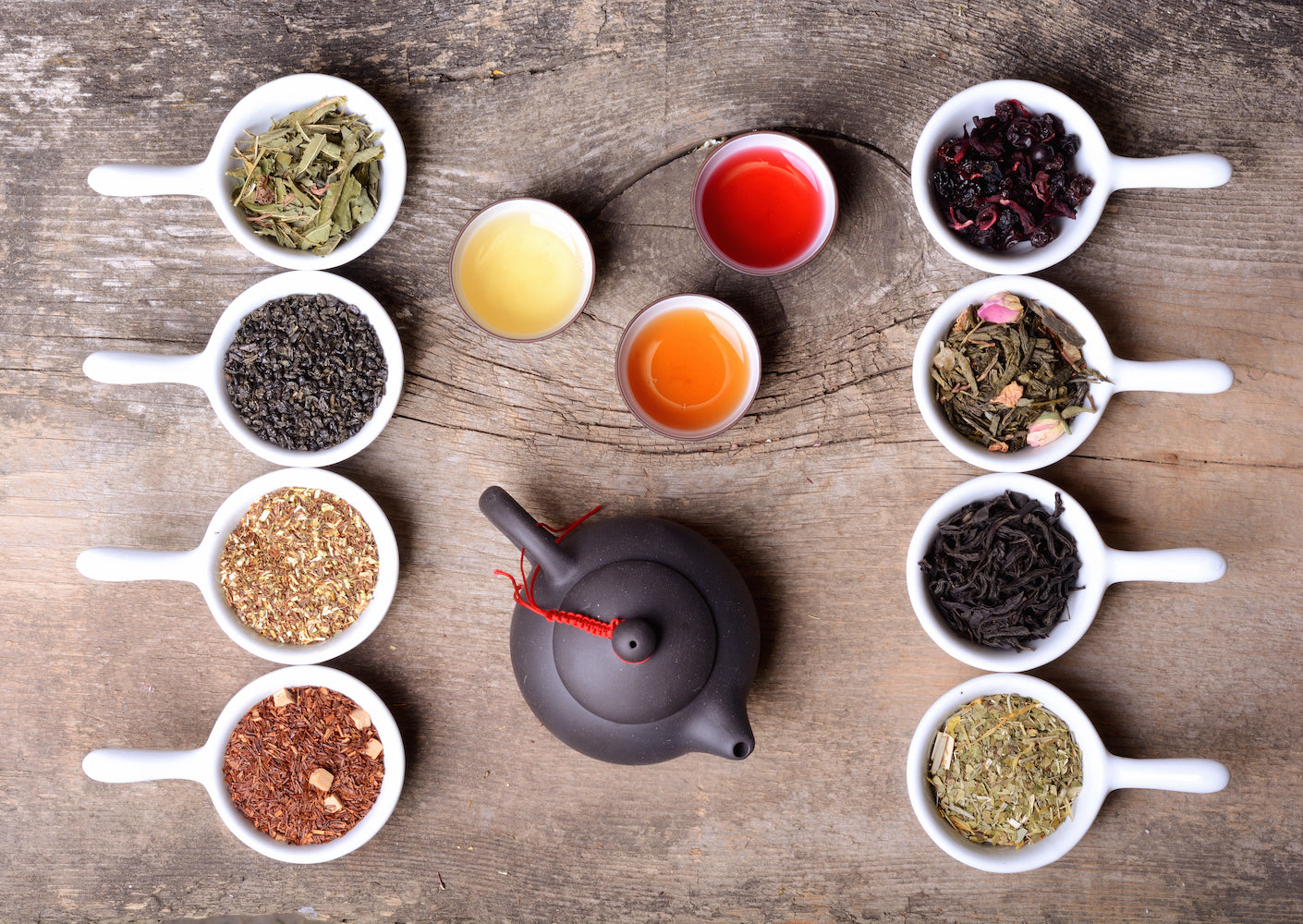
Does Tea Have Caffeine? Everything You Need to Know
Key Takeaways
- Caffeine in Tea: All traditional teas contain caffeine: 40–70 mg for black tea, 20–45 mg for green, and 15–30 mg for white. Herbal teas are naturally caffeine-free.
- Brewing Matters: A tea's final caffeine content is heavily influenced by your brewing method, as hotter water and longer steeping times extract more caffeine.
- Find Your Balance: Understanding caffeine's effects allows you to choose the right tea for your needs, from a high-caffeine boost to a low-caffeine option
Tea is one of the world’s most popular beverages, enjoyed for its rich flavours and soothing qualities. However, a common question arises among tea drinkers: Does tea have caffeine? The answer is yes, but the amount varies depending on the type of tea and how it's brewed. This guide explores caffeine content in different teas, its effects, and how to choose the best tea for your lifestyle
What Is Caffeine?
Caffeine is a natural stimulant found in tea, coffee, and some soft drinks. It works by stimulating the central nervous system, helping to improve alertness and reduce fatigue. While moderate caffeine intake can have benefits, understanding how much caffeine you consume is important for managing energy levels, sleep patterns, and overall health
Does Tea Contain Caffeine?
Yes, all traditional teas derived from the Camellia sinensis plant, such as black, green, white, and oolong teas, contain caffeine. However, the caffeine levels vary depending on the tea type, processing methods, and brewing techniques.
Caffeine Levels in Different Types of Tea
- Black Tea: Contains the highest caffeine levels, typically 40–70 mg per cup.
- Green Tea: Offers moderate caffeine, around 20–45 mg per cup.
- Oolong Tea: Falls between black and green tea, with 30–50 mg per cup.
- White Tea: Has a lower caffeine content, about 15–30 mg per cup.
- Herbal Teas: Naturally caffeine-free options, such as chamomile, peppermint, and rooibos
While tea contains caffeine, coffee generally has more. A standard cup of coffee has 95–200 mg of caffeine, significantly higher than most teas. Factors like bean type, brewing time, and preparation method influence caffeine levels in coffee, just as tea’s caffeine content varies based on leaf types and steeping time
Factors Affecting Caffeine in Tea
- Type of tea leaf: Younger leaves and buds contain more caffeine.
- Brewing time and temperature: Longer steeping and hotter water extract more caffeine.
- Serving size: Larger tea servings naturally have more caffeine
Health Implications of Caffeine in Tea
Benefits:
- Boosts mental alertness and focus.
- Contains antioxidants that support overall health.
- May enhance metabolism and promote digestion
Potential Downsides:
- Can cause jitteriness in caffeine-sensitive individuals.
- May disrupt sleep if consumed late in the day.
- Could contribute to acid reflux or digestive discomfort in some people
Choosing the Right Tea for Your Caffeine Needs
If you’re looking to reduce caffeine intake, opt for white tea, herbal teas, or decaffeinated options. To further lower caffeine content, try:
- Using shorter steeping times.
- Choosing larger tea leaves (which have less caffeine than broken leaves).
- Blending tea with herbal infusions to dilute caffeine levels
Conclusion
Tea is a versatile beverage that contains varying amounts of caffeine depending on its type and preparation. Whether you prefer a strong black tea or a calming herbal infusion, understanding caffeine levels can help you choose the best tea for your needs. Explore different teas to find the perfect balance of flavour and caffeine that suits your lifestyle
FAQs
Can decaffeinated tea still have caffeine?
Yes. Decaf tea usually retains 2–5 mg of caffeine per cup. The process removes most, but not all. For a completely caffeine-free option, choose herbal teas.
Which tea has the least caffeine?
Herbal teas like chamomile, peppermint, and rooibos contain no caffeine. Of traditional teas, white tea is generally lowest, though levels vary with leaf type and brew time.
How can I reduce the caffeine in my tea?
Steep for a shorter time, use cooler water, or select decaf versions of your favourite tea. Blending with herbal teas is another easy way to cut caffeine naturally.
Additional Reading
If you're keen to keep reading up on Primo Caffe's range of content, find some quick access links below. Happy reading!
- Ultimate Guide to Caffeine Content
- How Much Caffeine In Instant Coffee
- How Much Caffeine Is In Espresso Coffee
- Are There Health Benefits To Decaf Coffee
- Does Filter Coffee Have Less Caffeine
- Does Tea Have Caffeine
- Is Coffee Good For You
---
About the Author
Nicolas Di Stefano is a third-generation Master Roaster and Director of Primo Caffe. With decades of family tradition behind him, Nicolas combines time-honoured Italian roasting techniques with a passion for quality, delivering delicious coffee that Australians expect.

